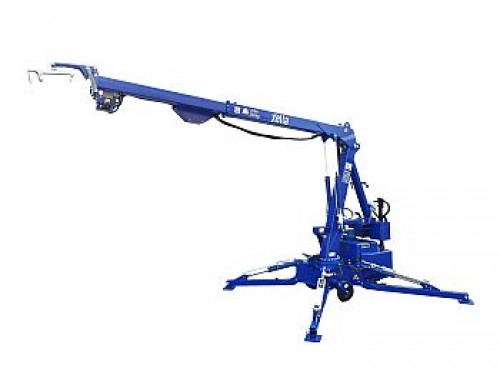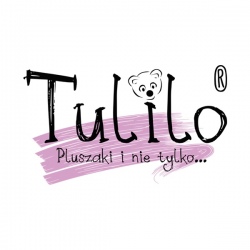Export of Windows: Window Joinery from Poland
For many years, Poland has played a significant role in the international window joinery market, ranking among the largest exporters of windows globally. This sector is one of the pillars of Polish exports, and its dynamic growth has contributed to establishing Poland's strong position as a leader in this field. Window joinery, particularly windows, constitutes one of the most important branches of Polish industry, gaining recognition in both European and global markets. Over the past decades, Polish window manufacturers have earned a reputation for combining innovation, high product quality, and competitive prices. Additionally, the growing demand for energy-efficient and eco-friendly solutions supports the expansion of Polish window joinery.
Poland has been at the forefront of the largest window exporters in Europe for many years. According to data from 2023, the value of Poland's window joinery exports reached approximately €2.5 billion, reflecting a 10% increase compared to the previous year. The main markets for Polish manufacturers include Germany, France, Italy, the United Kingdom, and Scandinavian countries. Germany is a key trading partner, accounting for over 25% of Poland's total window exports. Exports to France and Italy have also grown significantly in recent years, demonstrating increased interest in Polish products in Western Europe. The rise in window exports is attributed not only to the high quality of the products but also to effective marketing strategies and tailored offerings to meet the specific needs of each market. While EU countries remain the largest markets for windows manufactured in Poland, increasing attention is being directed toward non-European regions, including Africa.
Although still marginal compared to European markets, window exports to Africa are developing dynamically. North African countries, in particular, are of interest to Polish manufacturers. Thus, exporting windows to Morocco, Algeria, or Egypt, where there is significant demand for modern solutions in residential and commercial construction, appears to be a highly promising direction. Urbanization and infrastructure investments drive demand for high-quality products, offering Polish companies opportunities for expansion. Similarly, countries in Sub-Saharan Africa, such as Nigeria, Ghana, and Cameroon, are showing growing interest in importing window joinery. Exporting windows to Nigeria is likely to grow due to increasing demand for modern solutions in urban construction, while exports to Ghana will be driven by investments in infrastructure and commercial real estate development. Similarly, exporting windows to Cameroon will gain importance, although logistical challenges and cultural differences will require tailored offerings and sales strategies to effectively meet local needs.
The growth of window exports to Africa also requires understanding local conditions. Polish window exporters must adapt their products to specific climatic and technical requirements, such as resistance to high temperatures and intense solar radiation. Cooperation with local partners, who can assist in product distribution and marketing, is also essential.
It is worth noting that Poland is not only one of the largest window exporters in Europe but also a leader in the production of PVC windows. Products made from this material are highly popular due to their durability, energy efficiency, and attractive prices. Moreover, Polish manufacturers are increasingly investing in the development of technologies, such as passive and energy-efficient windows, which are particularly sought after in countries with harsh climates. Responding to the growing demand for eco-friendly solutions, Polish companies are introducing innovative products that meet the highest quality and environmental standards. Windows produced in Poland are also characterized by a wide variety of designs and colors, allowing them to be tailored to diverse architectural styles. Additionally, manufacturers are placing greater emphasis on product customization, enabling individual and business customers to choose solutions that perfectly meet their needs.
The dynamic growth of window exports from Poland is supported by well-developed production infrastructure and advanced technology in Polish factories. Thousands of companies operate in the country’s window joinery sector, many of which are family businesses that have earned international recognition through years of experience. Large companies play a key role in promoting Polish windows worldwide. These enterprises not only export their products but also invest in the development of distribution networks and marketing abroad, strengthening Poland's position in the global market. Collaboration with industry organizations and research centers is also a crucial element, enabling continuous improvement of production processes and the introduction of new, innovative solutions.
A significant factor supporting the development of window exports from Poland is the availability of a highly skilled workforce. Polish engineers and technicians are renowned for their expertise in modern technologies and innovative approaches to production. As a result, Polish companies can deliver top-quality products that meet the expectations of even the most demanding clients. Furthermore, the Polish government and industry organizations support the sector's growth through various grant and promotional programs. Initiatives such as export support programs, employee training, and participation in international fairs and exhibitions contribute to increasing the global recognition of Polish window joinery. Thanks to these efforts, Polish products are perceived not only as cost-competitive but also as leaders in innovation and quality.
Window exports from Poland also play an important role in the country's trade balance. The growth of export value in this sector translates into increased revenues for Polish companies and the creation of new jobs. According to data from the Central Statistical Office, the window joinery industry employs over 100,000 people, making it one of the key sectors of the economy. The dynamic growth of exports also drives investments in modern technologies and production infrastructure, which, in turn, enhances the competitiveness of Polish products in international markets. The increased revenues in this sector positively impact other areas of the economy, such as transport, logistics, and financial services.
Despite numerous successes, the Polish window joinery industry faces several challenges. One of these is increasing competition from manufacturers in countries like China and Turkey, who offer competitively priced products. In response to these challenges, Polish companies are increasingly investing in the development of innovative technologies and raising product quality standards. Another challenge is the evolving legislation on energy and environmental standards in the European Union, which requires manufacturers to comply with increasingly stringent regulations. However, Polish companies are overcoming these difficulties through flexibility and the ability to quickly adapt to changing market conditions. The adoption of sustainability-oriented strategies and the use of modern technologies help maintain their position and open new opportunities for expansion.
In the coming years, window exports from Poland are expected to grow dynamically. Forecasts indicate that the value of Polish window joinery exports could increase by another 20% by 2026. Key factors will include investments in new technologies, such as smart window systems and building automation solutions. Additionally, the growing demand for eco-friendly products and the development of energy-efficient and passive construction sectors create new opportunities for Polish window manufacturers. Thanks to their innovation, high-quality products, and the ability to quickly respond to market needs, Polish companies have the potential to strengthen their position as leaders in the global window joinery market. Furthermore, cooperation with foreign partners and the development of international distribution channels will be key elements of the sector's growth strategy in the coming years.

 pl
pl  en
en  de
de  es
es  fr
fr  it
it  pt
pt  ru
ru  sv
sv 























.jpg)


